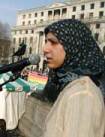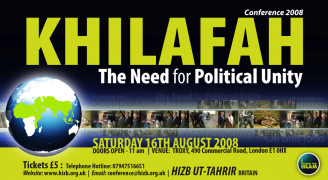 Muslim councillors are being frozen out of Birmingham’s efforts to clamp down on Islamist terrorism according to Sparkbrook councillor Salma Yaqoob.
Muslim councillors are being frozen out of Birmingham’s efforts to clamp down on Islamist terrorism according to Sparkbrook councillor Salma Yaqoob.
The local authority was awarded £500,000 as part of the government’s “pathfinder” Preventing Extremism project last year – and has now been given an additional £2.4 million under the three year Preventing Violent Extremism (PVE) programme. Yaqoob’s beef is that all this cash is being spent by city officials without reference to elected Muslim representatives.
She raised the issue at a recent Council meeting where she said, “many projects have taken place in wards without the consultation and participation of ward members and without accountability to the local communities through the ward structures.” And she asked, “How will the existing structures which bring transparency and accountability … be utilised in any planning for this programme?”
The response to her request for “transparency and accountability” was to be told that she “misunderstands” the Council’s role – which could be explained to her in a private meeting with the Cabinet Minister for Equalities Alan Rudge. “This is public money,” said an outraged Yaqoob. “The way it’s being spent should be discussed in public. It should all be transparent.”
A case in point is a major anti-extremism conference organised by Aston-based management consultants Waterhouse in October (see link here). The event includes an address by reformed radical Ed Hussain, who Yaqoob argues is a divisive figure, more likely to stir up anger than heal wounds. “He is somebody who doesn’t want dialogue, he wants to close down dialogue,” she said. She believes that she and her fellow Muslim councillors would have been unlikely to ask him to attend – but of course, they weren’t asked.
Yaqoob again tried to take up the lack of democratic accountability at a cross-party meeting of Muslim councillors and community officials earlier this week – only for one city official to warn her that what she was doing was “against procedure”. He warned that he would “report her” (!) to Mike Whitby and Alan Rudge, and stormed out of the meeting. Although he eventually returned – 15 minutes later – the official is now the subject of a complaint.
“This is really worrying,” Yaqoob said. “Some officers don’t seem to realise that their job is to act in accordance with what councillors want – not the other way around. “The real issue here is that councillors are the elected representatives of the people and we have the contacts and the knowledge.”
Birmingham City Council have been invited to respond.
The Stirrer, 8 August 2008
Via Socialist Unity

 MI5 participated in the unlawful interrogation of a British resident now held in Guantánamo Bay, the high court found yesterday in a judgment raising serious questions about the conduct of Britain’s security and intelligence agencies.
MI5 participated in the unlawful interrogation of a British resident now held in Guantánamo Bay, the high court found yesterday in a judgment raising serious questions about the conduct of Britain’s security and intelligence agencies. A government minister has condemned a decision by radical Muslims to stage their annual party conference in London’s East End on Saturday.
A government minister has condemned a decision by radical Muslims to stage their annual party conference in London’s East End on Saturday. Muslim councillors are being frozen out of Birmingham’s efforts to clamp down on Islamist terrorism according to Sparkbrook councillor Salma Yaqoob.
Muslim councillors are being frozen out of Birmingham’s efforts to clamp down on Islamist terrorism according to Sparkbrook councillor Salma Yaqoob. “The communities’ secretary seems to be pursuing an increasingly hawkish policy towards the Muslim minority. A few days ago, she gave a
“The communities’ secretary seems to be pursuing an increasingly hawkish policy towards the Muslim minority. A few days ago, she gave a